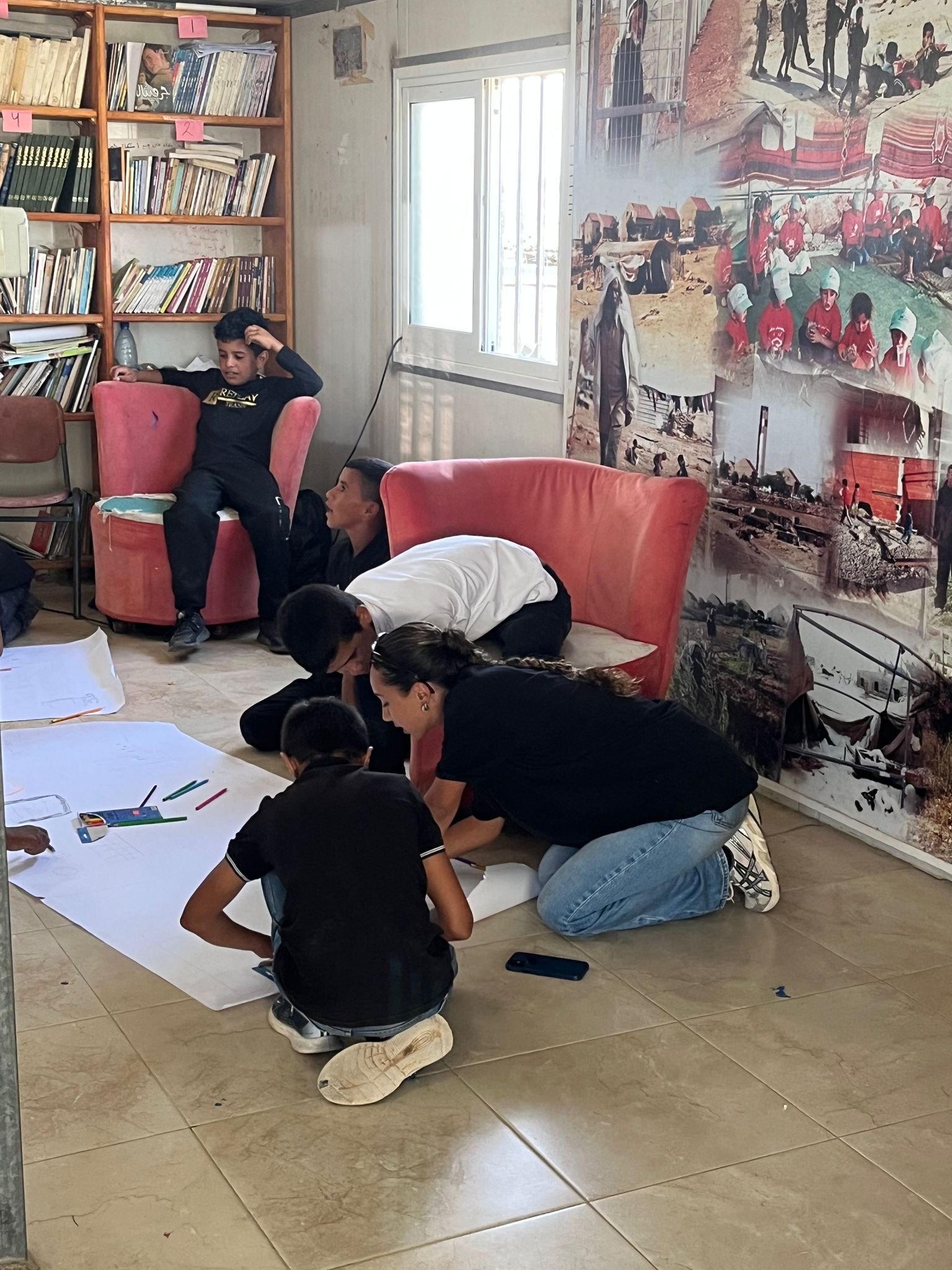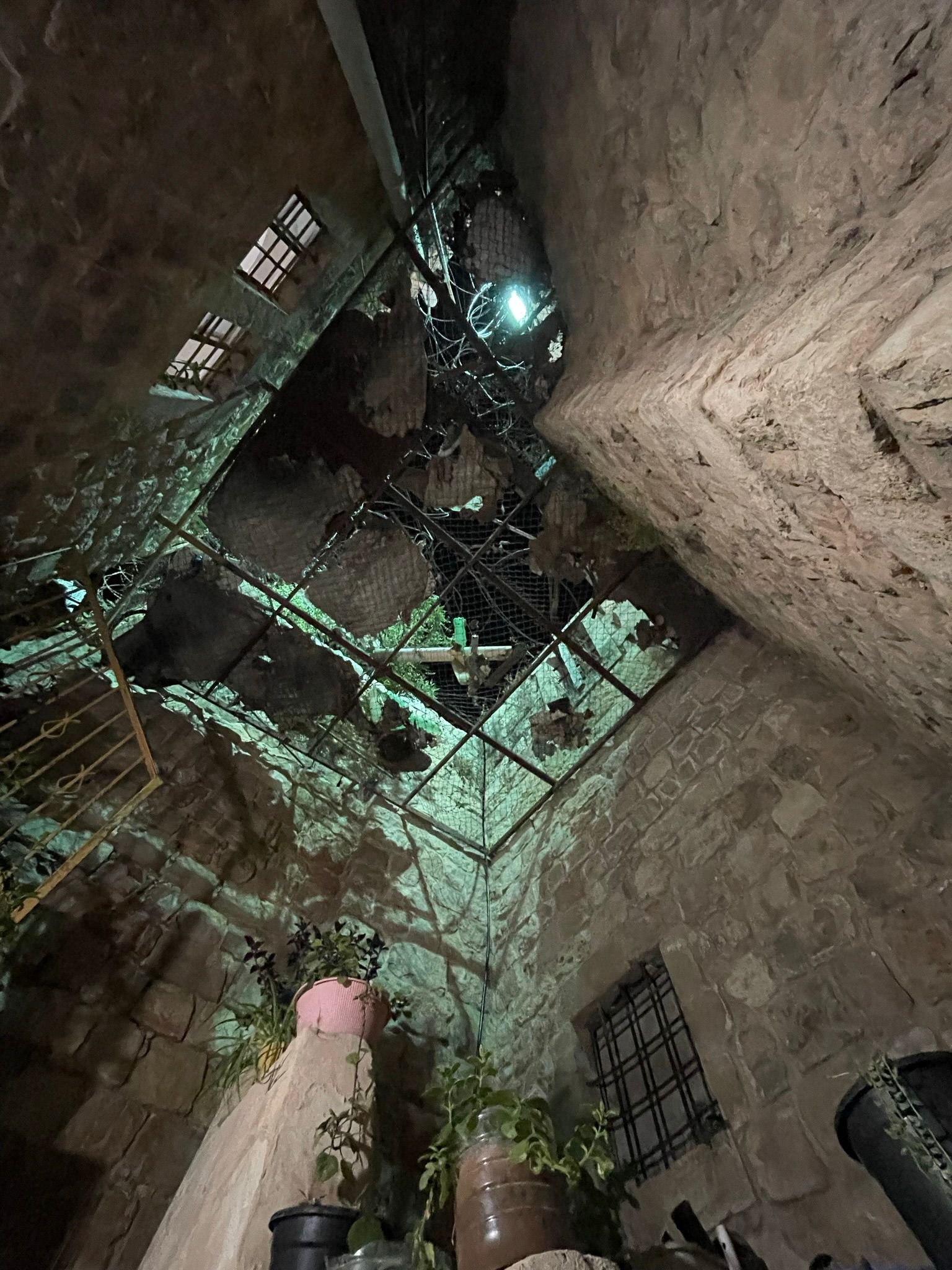Let me share two incidents that shed light on life in Palestine.
The first occurred just after the orientation week, just before starting my internship in Al Khalil. That day, all checkpoints were closed, except (supposedly) the one allowing the passage from Bethlehem to Al Khalil. Trusting this route, our group took the taxi. Finally, we find the checkpoint closed upon arrival. Attempting to negotiate with the soldiers for an alternative route, we were met with relatively cooperative responses. Yet, a Palestinian man simply stepped out of his car nearby. Instantly, the soldiers began shouting at him, brandishing their weapons and aggressively ordering him back into his vehicle, a stark demonstration of the control prevalent in daily life.
The second story takes place in Al Khalil, where we found ourselves on the rooftop of a friend’s home in the old city. Like many Palestinians, he relied on a cistern for water due to restricted access caused by the occupation. Pointing out a bullet mark on the cistern, our friend explained that nearby, a soldier stationed on a control tower, monitored their every move, day and night, due to their proximity with the settlement. He revealed the disturbing reality that soldiers sometimes aimed to damage the cistern, denying them access to water or even placed objects and trash inside it, highlighting the deliberate hardships and inhuman conditions imposed upon Palestinians. These stories, unfortunately, are not isolated incidents but daily life for Palestinians. As Baha, our educator during the summer program, told us, from the moment of their birth, Palestinians are subjected to treatment as second-class citizens. Palestinians, from the moment of their birth, endured unlawful occupation and apartheid-like conditions.
My internship took place in Al Khalil (Hébron), where I worked with an association called HIRN. The primary objective was to collect testimonies from individuals residing in the southern region of Hebron, who endure frequent settler violence. Engaging directly with Palestinian residents, I witnessed firsthand the profound challenges they face, for example regarding water, but also their remarkable resilience. Additionally, we took part in a summer program for the children of Umm Al Khair, a community situated in the southern Hebron area heavily targeted by settlers attacks. During this program, we engaged in recreational activities with the children and provided English language classes.
This picture is from Al Khalil’s old town, where settlers live right on top of Palestinian residents. You can see trash that the settlers throw down from their appartments towards the Palestinian streets.
One thing that surprised me during my time in Palestine was the unwavering optimism and resilience of the people, particularly during my visit to Aida Camp in Bethlehem. Prior to my arrival, I was really pessimistic because of the grim narratives often portrayed in international media. However, upon interacting with the director of a cultural center within the camp, I was stuck by his steadfast optimism and determination. Despite facing immense challenges living in a refugee camp because of the displacement (Nakba), the people of Palestine demonstrated a profound attachment to their land and an unyielding resolve to remain steadfast in the face of adversity. Their resilience served as a powerful reminder of the human spirit’s capacity to ensure and preserve against all odds. It’s their land and they will remain there!



